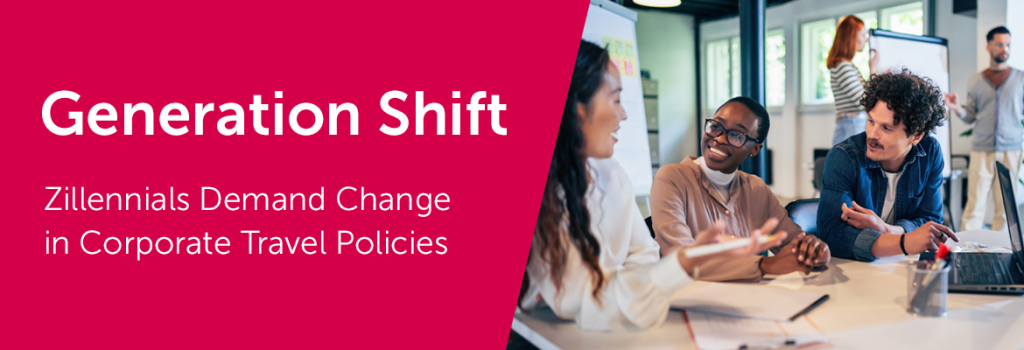
Zillennials, a dynamic mix of Millennials and Generation Z, are changing the face of the workforce, and they're demanding more than just traditional business trips. With these younger generations projected to make up 75% of the global workforce by 2025, this isn't just a fad – it's the future.
For those unfamiliar with the term, a corporate travel policy is essentially a rulebook that companies provide to employees who need to travel for work. It outlines the dos and don'ts, where employees can stay, how they can travel, and what costs will be reimbursed. Yet, much like a classic black-and-white movie in an era of 4K films, many of these policies haven't quite caught up with the times.
The Zillennial generation isn’t interested in punching the clock and collecting a paycheck. They're driven, ambitious, and they see travel as an integral part of their personal and professional growth. For them, business travel isn't just a task – it's an opportunity. They're not just looking to jet in, attend meetings and head home. They want to immerse themselves in different cultures, explore new cities, and use these opportunities to broaden their horizons.
"Zillennials are looking for more than just a business trip. They're seeking experiences that allow them to balance work with leisure and exploration," says Bonnie Smith, General Manager of Corporate Traveller. "This is a generation that values experiences. They don't see business travel as a chore, but as an opportunity. Unfortunately, traditional policies aren't equipped to cater to these needs."
Indeed, despite the fact that many companies are using technology and digital tools to stay ahead of the curve, the approach to updating travel policies has been comparatively sluggish. A recent white paper by the Business Travel Association revealed a stark reality. Companies that have reworked their policies to cater to the changing demands of Zillennials are 33% more likely to retain these workers.
"The stakes are high," warns Smith. "A lacklustre travel policy could very well mean the difference between attracting and retaining top talent, and seeing them walk out the door. Today's young workforce isn't just looking for jobs. They're seeking lifestyles that blend their personal and professional goals."
There are plenty of ways businesses can adapt and evolve to meet these changing demands. According to Smith, the first step is to seek direct feedback from employees about their travel preferences and experiences. Once that's in hand, companies need to rethink their travel policies with a focus on flexibility, cultural experiences, and personal exploration.
"Embracing change is a challenge, but it's also an investment in the future," adds Smith. "Companies need to understand that a dynamic, modern travel policy isn't just a perk. It's a powerful tool to attract and retain the best talent in a competitive landscape."
The Zillennial revolution isn't coming – it's here. Businesses need to take heed and adapt their travel policies, not just as a set of rules, but as a strategic tool for engagement, recruitment, and retention. In this shifting landscape, it's not just about getting from point A to B, but about enjoying the journey in between.
This shift isn't just a preference – it's a necessity. A white paper recently released by Corporate Traveller reveals that 60% of Zillennials consider flexible travel policies as a key deciding factor when considering job opportunities. And with 70% admitting they would reject a job offer from a company with rigid, outdated travel policies, it's clear there's work to be done.
For those looking for practical ways to update their corporate travel policy to better suit Zillennials, the Corporate Traveller white paper, Generation Shift: Rethinking Corporate Travel Policies for Zillennials, is a must-read. It's packed with invaluable insights and easy-to-implement strategies to help businesses transition into the future of work travel. The future of work is here – are you ready to step into it?